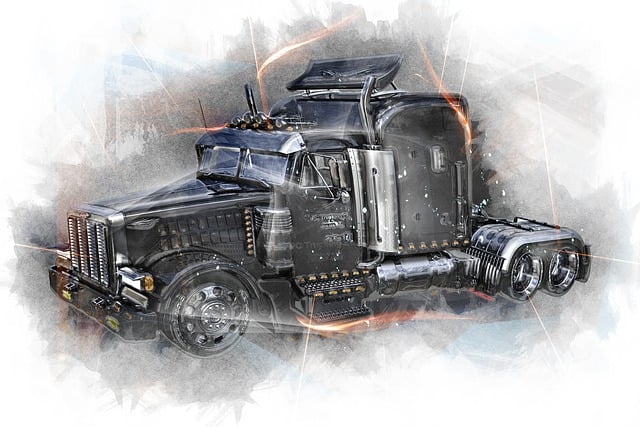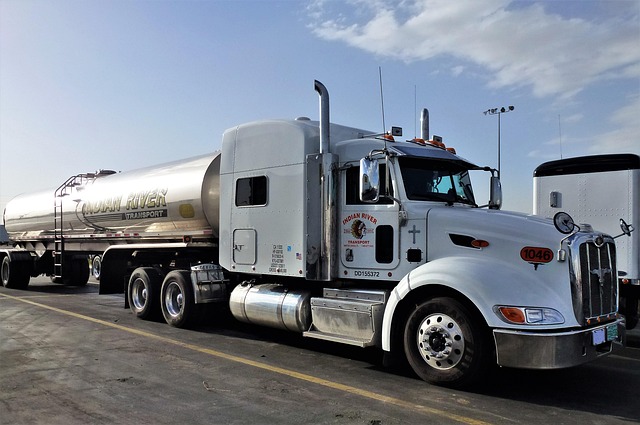Small fleets face unique third-party liability risks, including accidents, property damage, and personal injuries. Liability insurance tailored for these operations offers crucial protection, such as cargo liability insurance and multi-truck liability policies, which streamline administration and reduce costs. This coverage is essential for financial stability and business expansion in the competitive commercial fleet insurance landscape, especially for trucking businesses and delivery services. By comparing quotes through online platforms or specialized brokers, owners can secure affordable fleet insurance packages that include cargo liability and multi-truck policies, mitigating risks and ensuring compliance with legal obligations.
In today’s dynamic transportation landscape, effectively managing third-party liability risks is paramount for small fleet operators. With increasing regulatory pressures and rising legal costs, understanding and leveraging the right liability insurance tools can be a game changer for trucking businesses. This comprehensive guide delves into the intricacies of fleet liability coverage, exploring options tailored for small fleets while emphasizing the importance of affordable fleet insurance in mitigating potential losses. From comprehending cargo liability insurance to navigating multi-truck liability policies, this article equips readers with insights crucial for safeguarding their trucking businesses.
Understanding Third-Party Liability Risks for Small Fleets

Small fleets, often comprising a few trucks or delivery vehicles, face unique challenges when it comes to third-party liability risks. These risks arise from various unforeseen circumstances such as accidents involving cargo, property damage during transport, or personal injuries to bystanders. For fleet owners, managing these risks effectively is crucial not only for compliance with legal obligations but also for the financial stability of their trucking business.
Liability insurance specifically tailored for small fleets offers comprehensive protection against these potential pitfalls. Affordable fleet insurance policies provide coverage for cargo liability insurance, ensuring that the business is shielded from claims related to damaged or missing goods during transit. Multi-truck liability policies are particularly beneficial as they offer a seamless solution for insuring multiple vehicles under one policy, streamlining the administrative process and potentially reducing costs. Such protection is vital for small trucking operations aiming to expand and navigate the competitive landscape of commercial fleet insurance.
The Role of Liability Insurance in Fleet Management

Liability insurance plays a pivotal role in effective fleet management, especially for small fleets navigating the complex landscape of trucking and commercial transportation. With fleet liability coverage, operators can shield their businesses from potential financial pitfalls associated with accidents or damage to third-party property. This protection is crucial for small fleet owners who may not have substantial reserves to cover unexpected liabilities.
Affordable fleet insurance policies, tailored for trucking businesses and multi-truck operations, offer comprehensive solutions. They typically include cargo liability insurance, which protects against claims arising from damaged or lost goods during transit. Such policies ensure that operators remain resilient in the face of unforeseen events, safeguarding their financial health and enabling them to continue providing services without undue disruption.
Types of Fleet Liability Coverage and Their Benefits

Small fleets, including trucking businesses and delivery services, face unique challenges when it comes to third-party liability risks. That’s where fleet liability coverage steps in as a vital shield. This type of liability insurance protects against claims arising from accidents or damage caused while operating vehicles under your fleet’s ownership or control.
Different policies cater to various needs, offering commercial fleet insurance options for vehicle damage, driver’s legal expenses, and even cargo liability insurance to safeguard goods in transit. Multi-truck liability policies provide comprehensive protection for businesses with multiple trucks, ensuring affordable fleet insurance without compromising on coverage. This proactive approach allows small fleet operators to manage risks effectively and maintain peace of mind, focusing on their core operations while adhering to legal obligations.
Accessing Affordable Commercial Fleet Insurance Options

Many small trucking businesses and fleet operators often face a challenge when it comes to securing adequate liability coverage at affordable rates. However, leveraging the right insurance tools can significantly simplify this process. Online platforms and specialized insurance brokers dedicated to commercial fleet insurance offer a wide range of options tailored for small fleets. These resources allow business owners to compare quotes from multiple insurers, ensuring they find the best value for their needs.
By focusing on liability insurance for small fleets, including cargo liability insurance and multi-truck liability policies, operators can protect themselves against potential risks associated with their trucking activities. Affordable fleet insurance packages often include comprehensive coverage options such as bodily injury, property damage, and liability for loaded and unloaded goods. This not only provides peace of mind but also ensures that businesses stay compliant with legal requirements, safeguarding them from costly lawsuits and claims.
Leveraging the right insurance tools is pivotal for small fleet owners to navigate and mitigate third-party liability risks effectively. By understanding these risks and exploring tailored solutions like liability insurance, cargo liability coverage, and multi-truck liability policies, trucking businesses can ensure comprehensive protection at competitive rates. Accessing affordable commercial fleet insurance options allows operators to safeguard their assets, maintain operational continuity, and focus on growth while staying compliant with regulatory requirements.
